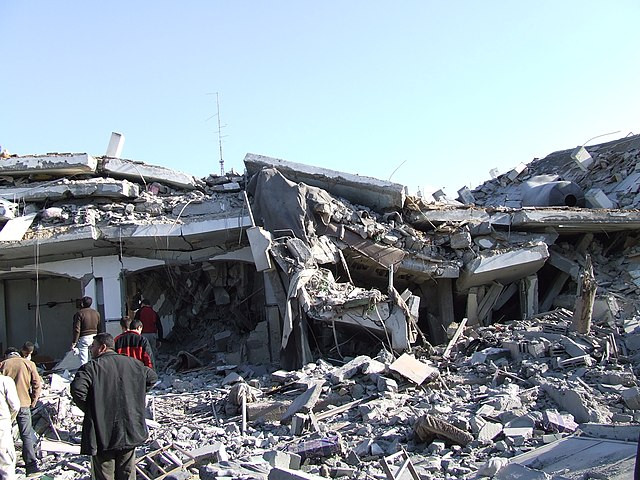The ongoing conflict between Israel and Hamas has reached a devastating new milestone, with the Palestinian health ministry in Gaza reporting that more than 40,000 Palestinians have been killed since the war began 10 months ago. The staggering death toll, which includes women and children, underscores the severe humanitarian crisis unfolding in the enclave.
The health ministry in Gaza, which has been tracking the casualties, noted that 40,005 people have lost their lives, a figure that includes those killed in the past 24 hours alone. Additionally, more than 92,000 have been injured, painting a grim picture of the scale of devastation in the region. While the ministry's figures do not differentiate between combatants and civilians, they assert that the majority of the dead are non-combatants, primarily women and children.
The conflict, which erupted following Hamas's surprise attack on Israel on October 7, has left Gaza in a state of dire emergency. The Israeli government has reported that over 17,000 Hamas combatants have been killed since the start of the conflict. However, the full human toll may be even higher, with at least 10,000 more people believed to be buried under the rubble of destroyed buildings.
The escalating death toll has drawn condemnation from international bodies. United Nations officials, including UNRWA Commissioner-General Philippe Lazzarini, have expressed alarm at what they describe as a "very grim milestone" in the ongoing conflict. Lazzarini called the situation a "direct result of a collective failure to reach a ceasefire," urging the global community to take action.
The conflict's intensity was further highlighted by a recent Israeli airstrike that targeted a school and mosque in Gaza City, resulting in the deaths of at least 93 people, according to local officials. The Israel Defense Forces (IDF) confirmed the strike, stating that it was aimed at Hamas terrorists operating within the facility. The IDF claimed that 19 Hamas and Islamic Jihad militants were eliminated in the strike. However, the incident has been met with widespread condemnation, including from some of Israel's closest allies.
Volker Türk, the UN High Commissioner for Human Rights, echoed the concerns of many, stating that the high civilian death toll is largely due to repeated failures by the IDF to adhere to the rules of war. "Most of the dead are women and children," Türk said, emphasizing the urgent need for a ceasefire to prevent further loss of life.
Efforts to broker a ceasefire have been ongoing, but recent developments have cast doubt on the likelihood of a resolution. Israeli Prime Minister Benjamin Netanyahu faces increasing pressure, both domestically and internationally, to reach an agreement with Hamas. Mediators from Egypt and Qatar have conveyed to Israeli officials that Yahya Sinwar, the new head of Hamas's political bureau following the assassination of Ismail Haniyeh, is seeking a ceasefire deal. However, Hamas has stated that it will not participate in talks unless there are significant developments from Israel.
The humanitarian crisis in Gaza is reaching unprecedented levels, with nearly the entire population displaced by the conflict. United Nations Relief and Works Agency (UNRWA) reports that less than one-sixth of Gaza's area remains free from Israeli evacuation orders. The constant movement of people, combined with the destruction of infrastructure, has left Gaza's residents in a state of perpetual uncertainty.
The situation has become so dire that gravediggers in Gaza are struggling to find space to bury the dead. Cemeteries are overflowing, and in some cases, old graves are being reopened to accommodate the newly deceased. Najy Abu Hateb, a gravedigger in Khan Younis, described the exhaustion and despair that has gripped those tasked with burying the dead. "We haven't stopped for even a minute, and we hope the war ends ... there's no place (to bury people)," Hateb said.
As the conflict drags on, the international community's failure to broker a ceasefire has left Gaza's residents in a state of deep despair. Fikr Shalltoot, the Gaza Director for Medical Aid for Palestinians, summed up the sentiment of many: "Many people are losing hope and some are losing faith, but mostly people are losing trust in the international community."




